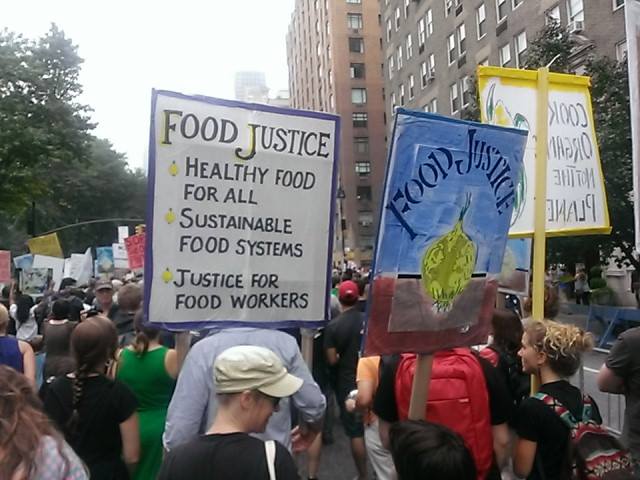Towards Equitable and Just Food Systems: Exploring food justice, food sovereignty, and ending food apartheid policy & practice
This resource explores the evolving language of food systems and policy work centered on addressing structural racism and inequity. It describes equity-focused terms and frameworks related to the food system, outlines how these terms and frameworks are used in food policy, and provides examples of what they mean in practice.
Introduction

Words matter. The words we use frame our understanding of the assets, needs, vision, value, culture and experiences of a community and shape our thinking on policy change efforts. This resource explores three important approaches or frameworks for advancing equity in the food system: food justice, food sovereignty, and ending food apartheid. It also provides policy examples that represent or embody each of these approaches. Next, this resource gives an overview of other commonly used terms (for example, food desert, food security), provides definitions, highlights strengths and weaknesses of each term, and provides examples of policies that use or relate to each term. This resource also lists several external resources and readings that provide additional opportunities to learn about the meaning and impact of certain terms and phrases. Discussion questions are listed at the end of each section to encourage conversation and reflection about what these terms mean to you, your community, and your policy partners.
The policy examples in this resource illustrate different approaches to building equitable food systems, but only represent a fraction of the creative policy options communities are pursuing. We hope this resource can be useful to those who work on local food systems and healthy food access, including (but not limited to) local food policy council members, municipal policymakers, state and local public health officials, planning officials, resident groups, community-based advocates, and Tribal governments and communities. Given that terminology is imperfect, and that language and terms are constantly changing, this resource should be considered a snapshot in time of current terminology that will need to be updated to remain relevant in the future.



